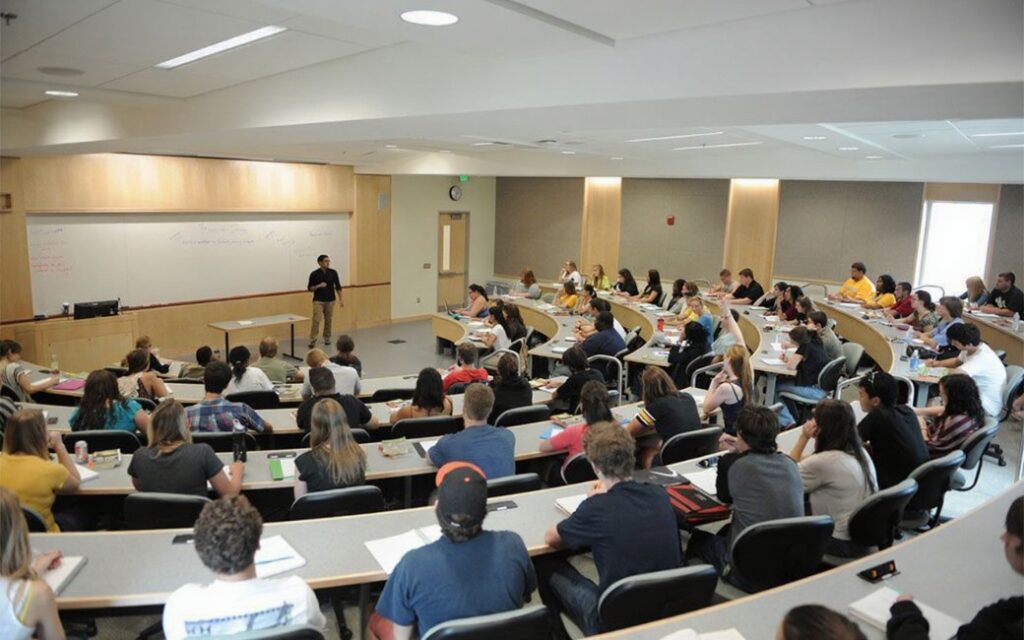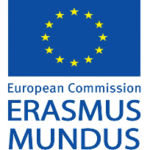Austria has long been recognized as one of Europe’s cultural and intellectual powerhouses. Nestled in the heart of the continent, it is home to historic universities, modern research hubs, and a vibrant student culture. While German is the official language in Austria, the country has steadily expanded its English-taught programs to attract international talent. Today, Austria offers around 350 English-taught degree programs across more than 77 higher education institutions, giving non-German speakers excellent opportunities to study without a language barrier.
If you’re considering Austria as your study destination, this comprehensive guide explores the top English-taught programs, popular fields of study, leading universities, admission requirements, and why Austria is one of the most affordable and rewarding countries for international students.

Table of Contents
Why Choose English-Taught Programs in Austria?
Before we dive into the program lists, here are compelling reasons why Austria is becoming a favorite destination for international students:
- Globally Recognized Degrees: Austrian universities are internationally accredited, ensuring your qualification is respected worldwide.
- No German Required: Many programs are delivered entirely in English, making it easier for international students to integrate academically.
- Cultural Richness: From Vienna’s classical music heritage to Salzburg’s arts and festivals, students enjoy a unique cultural immersion.
- Affordable Costs: Tuition fees are significantly lower than in the UK or US, with average fees ranging from €1,500 to €3,500 per year.
- Part-Time Jobs & Career Opportunities: Students can work up to 20 hours per week during studies and apply for full-time work after graduation.
Overview of English-Taught Programs in Austrian Universities
Austria offers a wide variety of English-language programs at the bachelor’s, master’s, and doctoral levels. Fields range from business and economics to cutting-edge STEM disciplines, medical sciences, and arts.
Quick snapshot:
- Total Programs in Austria: 2,000+
- English-Taught Programs: ~350
- Institutions Offering English-Taught Courses: 77+
- Degree Levels Available: Bachelor, Master, PhD
Popular Fields of Study for Non-German Speakers
1. Business & Economics
Austria’s strategic position in Europe makes it a hub for international business studies. Courses focus on global trade, management, and financial innovation.
Examples of programs:
- International Business Administration – WU Vienna (Vienna University of Economics and Business)
- Management, Economics & Social Sciences – University of Graz
- Business Informatics – TU Wien
Why study here? Vienna is home to multinational companies and international organizations (e.g., UN, OPEC), offering unique internship opportunities.
2. Engineering & Technology
Austria’s Technical Universities (TU Wien, TU Graz, Montanuniversität Leoben) are highly ranked in Europe. Programs emphasize innovation in renewable energy, artificial intelligence, and sustainable infrastructure.
Popular programs:
- Artificial Intelligence – Johannes Kepler University Linz
- Geotechnical & Hydraulic Engineering – TU Graz
- Building Science & Environment – TU Wien
- Renewable Energies – FH Technikum Wien
Graduates often find employment in Austria’s strong engineering sector, particularly in green technologies.
3. Computer Science & Data Science
With Europe’s booming demand for IT professionals, Austria has positioned itself as a hub for computer science, software development, and data analytics.
Highlighted programs:
- Computer Science – University of Innsbruck
- Logic and Computation – TU Wien
- Data Science & Intelligent Analytics – FH Kufstein Tirol
- Media Informatics – University of Vienna
These courses prepare students for global careers in AI, cybersecurity, fintech, and machine learning.

4. Life Sciences & Biotechnology
Austria has strong research clusters in biotechnology, biophysics, and environmental sciences, especially in Vienna and Graz.
Key programs:
- Biotechnology – University of Natural Resources and Life Sciences (BOKU), Vienna
- Biomedical Engineering – TU Graz
- Medical and Pharmaceutical Biotechnology – IMC Krems University of Applied Sciences
- Applied Limnology – BOKU, Vienna
The Austrian biotech sector is globally respected, offering students strong career pathways in research and pharmaceuticals.
5. Arts, Music & Humanities
Austria’s cultural legacy makes it an inspiring place for artists, musicians, and historians. Salzburg and Vienna are world-famous for classical music and fine arts.
Examples of programs:
- European Chamber Music Master – University of Music and Performing Arts, Vienna
- MultiMediaArt – FH Salzburg
- Fashion & Technology – University of Art and Design Linz
- Art & Science – University of Applied Arts Vienna
- Dance Pedagogy – Anton Bruckner Private University, Linz
For international students, Austria offers not just world-class training but also a stage to showcase talents globally.

6. Environmental & Agricultural Sciences
Austria’s focus on sustainability and climate science has given rise to unique programs in agriculture, forestry, and natural resource management.
Notable programs:
- Mountain Forestry – BOKU Vienna
- European Forestry (MSc) – BOKU Vienna
- Natural Resources Management and Ecological Engineering – BOKU Vienna
- Safety in the Food Chain – BOKU Vienna
Students benefit from Austria’s natural landscapes, which serve as living laboratories for environmental studies.
7. Law, Political Science & International Relations
Austria, as host to major international organizations in Vienna, is ideal for law and diplomacy studies.
Programs to consider:
- European Union Studies – Salzburg Centre of European Union Studies (SCEUS)
- International Legal Studies – University of Vienna
- Political Science (English tracks available in winter semester) – University of Salzburg
Graduates often move into careers with NGOs, UN agencies, or European institutions.
8. Specialized Interdisciplinary Programs
Austria encourages cross-disciplinary approaches that blend technology, arts, and sciences.
Examples:
- Cross-Disciplinary Strategies (Applied Studies in Art, Science, and Global Challenges) – University of Applied Arts Vienna
- Transformation Studies: Art x Science – University of Linz & University of Applied Arts Vienna
- Information & Communications Engineering – University of Klagenfurt
These innovative programs prepare graduates for modern challenges where skills from multiple domains intersect.
Top Universities Offering English-Taught Programs in Austria
Here are some leading Austrian universities and their popular English-taught courses:
- University of Vienna – Political Science, International Relations, Media Informatics
- Vienna University of Technology (TU Wien) – Logic & Computation, Building Science, Business Informatics
- University of Graz – Social Sciences, Environmental Studies, Business & Law
- University of Salzburg – Communication Studies, EU Studies, History, Sociology
- Johannes Kepler University Linz (JKU) – Artificial Intelligence, Biophysics, Data Science
- Graz University of Technology (TU Graz) – Biomedical Engineering, Advanced Materials Science, Computer Science
- BOKU Vienna (University of Natural Resources & Life Sciences) – Biotechnology, Forestry, Environmental Sciences
- IMC Krems University of Applied Sciences – Medical and Pharmaceutical Biotechnology
- FH Salzburg – MultiMediaArt, MultiMediaTechnology, Realtime Art & Visual Effects
Admission Requirements for English-Taught Programs in Austrian Universities
Admission depends on the level of study (bachelor, master, or PhD), but general requirements include:
- Academic Qualifications: Equivalent to Austrian Matura (high school diploma) for bachelor’s; completed bachelor’s for master’s.
- English Proficiency: TOEFL, IELTS, or equivalent certificates.
- Supporting Documents:
- Motivation letter
- CV/resume
- Transcripts of records
- Passport copy
- Entrance Exams/Interviews: Some programs (e.g., medicine, arts) require additional assessments.
Application Process for International Students
- Choose a Program – Use the Study in Austria Program Finder (studienwahl.at) to explore English-taught courses.
- Prepare Documents – Gather transcripts, proof of English, and supporting documents.
- Apply Online – Most Austrian universities use digital application portals.
- Wait for Admission Decision – Processing usually takes 6–12 weeks.
- Apply for Visa & Residence Permit – Non-EU students must secure these before arriving.

Costs of Studying in Austria
- Tuition Fees: €1,500 – €3,500 per year (varies by university and program).
- Living Expenses: €800 – €1,200 per month (including accommodation, food, transport).
- Scholarships: Options include Erasmus+, OeAD scholarships, and institutional grants.
Compared to Western Europe, Austria offers an affordable yet high-quality education system.
Academic Calendar
- Winter Semester: October – January
- Summer Semester: March – June
Applications should be submitted at least 6–9 months in advance, especially for non-EU applicants. Most English-taught programs begin in the winter semester (October).
Conclusion
English-taught programs in Austrian Universities offer the perfect combination of academic excellence, affordability, and cultural richness. From studying business in Vienna to mastering computer science in Graz or exploring music in Salzburg, students from all backgrounds can find programs tailored to their interests. With over 350 English-language courses available, non-German speakers can pursue their dream careers without language barriers while benefiting from Austria’s strong global reputation. Whether you’re interested in STEM, arts, social sciences, or interdisciplinary programs, Austria stands as one of Europe’s most attractive destinations for higher education
FAQs on English-Taught Programs in Austria
1. Do I need German to study in Austria?
Not necessarily. Many bachelor’s, master’s, and PhD programs are fully in English. However, learning basic German helps in daily life. If you enroll in an English-taught program, you only need to provide proof of English proficiency (TOEFL, IELTS, or equivalent). However, learning German is highly recommended for daily life, internships, and part-time jobs
2. How many English-taught programs exist?
Around 350 programs are available across 77 institutions.
3. Can I work while studying?
Yes,
EU/EEA students can work without restrictions.
Non-EU/EEA students usually need a work permit and are limited to 10–20 hours per week, depending on the type of residence permit and apply for post-graduation work permits. Read more here Working While studying in Austria for International Students: A complete guide
4. Which fields are most popular for non-German speakers?
Business, Computer Science, Engineering, Biotechnology, Arts, and International Relations.
5. How much does it cost to study in Austria?
Tuition averages €1,500–€3,500/year, with living costs around €1,000/month.
6. Are there enough English-taught programs in Austria for international students?
Yes. Austria offers around 350 full degree programs in English across various universities, covering fields such as business, computer science, engineering, social sciences, and the arts. Many more individual courses within German-taught programs are also available in English.
7. Which Austrian universities are best for English-taught programs?
Some of the top universities with strong English offerings include:
University of Vienna
University of Salzburg
Vienna University of Economics and Business (WU Wien)
Graz University of Technology (TU Graz)
University of Innsbruck
8. How much does it cost to study in Austria as an international student?
Tuition fees vary:
EU/EEA students often pay very low or no tuition fees (around €363 per semester).
Non-EU/EEA students usually pay about €726 per semester at public universities.
Private universities may charge higher tuition (from €5,000–€20,000 per year).
9. What English proficiency tests are accepted?
Most universities accept IELTS, TOEFL, Cambridge English exams, or equivalent. Minimum scores depend on the program, but IELTS 6.0–6.5 or TOEFL iBT 80–90 is commonly required.
10. What are the admission requirements for English-taught programs in Austria?
Requirements typically include:
A recognized high school diploma or bachelor’s degree (depending on program level).
Proof of English proficiency.
Application form and supporting documents (transcripts, motivation letter, CV). Some programs may require entrance exams or interviews.
11. Can I stay in Austria after graduation?
Yes. Non-EU/EEA students can apply for a 12-month job-seeking visa after graduation. If they find employment related to their studies, they may qualify for the Red-White-Red Card, which can lead to long-term residence.
12. How do I find English-taught programs in Austria?
You can use official databases such as:
Study in Austria
Studienwahl.at
University websites directly
13. Are scholarships available for international students in Austria?

Yes. Several scholarships are offered by the Austrian Agency for Education and Internationalisation (OeAD), universities, and the Austrian government. Examples include: Ernst Mach Grant
Austrian Development Cooperation scholarships
University-specific scholarships
12. Is Austria a good destination compared to other European countries?
Absolutely. Austria combines affordable tuition, a high standard of living, a safe environment, and strategic location in Europe, making it one of the best destinations for international students.


